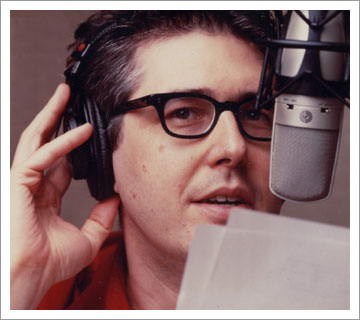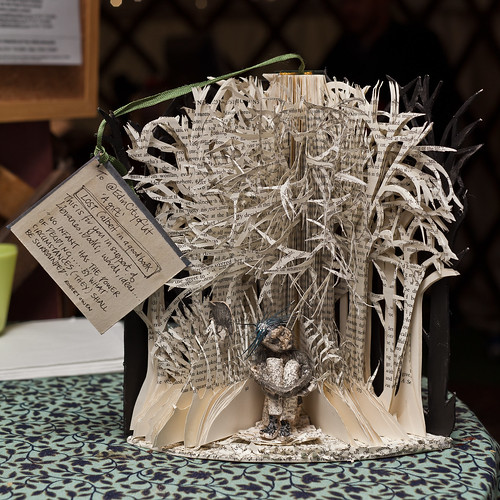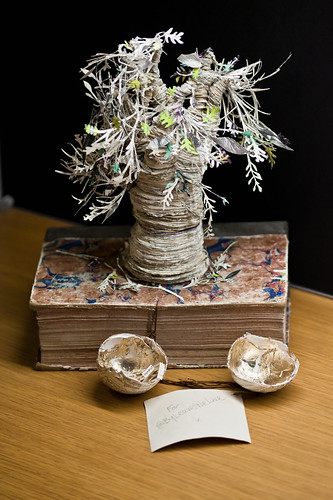September is national library card sign-up month for students, according to the American Library Association. The New Letters on the Air podcast this week (see 9/11/11 on their schedule) hosted a program called
American Sanctuaries, in which were interviewed writers such as E. L. Doctorow, Junot Diaz, and Anne Lamott about the importance of libraries in our communities and in their lives personally.
My mom was a big believer in librarires. Every three weeks to the day (three weeks being the maximum length of time our library allowed patrons to keep a book) she loaded my 7 siblings and me into our van and drove us to the library where I'm not even sure how many books we were technically allowed to pick out, because the librarians would always let us have as many as we wanted. "You're good patrons. You always bring them all back. Take whatever you want," they would say. And we would take over 200 most weeks. (When we went away for the summer, they would frown. "Our circulation numbers will plummet," they would say. "What day did you say you were coming back?")
My mom worried about getting all these books returned, so in that pre-computer time, I had the job of making a list of every single book we'd checked out before the kids were allowed to take them and disappear into their favorite reading nooks. You will probably recall that I love lists, so this task was pure pleasure for me. I got to examine each book before setting it free in our home.
When I first moved to Japan, it became clear to me that getting reading material was going to be one of my biggest obstacles to adjusting to expat life. (This was in pre-internet shopping days.) I quickly located the local library, discovered a single shelf of books in English, and with very little Japanese language ability, presented myself at the circulation desk and somehow made it clear I wanted a library card. It took a couple of visits to the library before I could get one, since I needed documentation proving my address, but I did get one, and then systematically read every English book they had, including the biology textbook. Who doesn't need a refresher course on the Krebs cycle, I reasoned.
Then I was out of books again. Soon I found out that the local YMCA had a book attached to its language school, so I presented myself there and asked for borrowing priveleges. Not a student? they asked. Then absolutely not. Mournfully I stood in front of their forbidden shelves, salivating over the books I was not to borrow, when a change in classes filled the hallways up with students, and without thinking about it, I grabbed a handful of books, shoved them into the pockets of my down-filled parka and joined the throng headed for the door.
I did this again and again, getting good at knowing when the classes changed, and eventually I had some 80 books in my apartment. A visiting friend was aghast. "You're stealing from the YMCA?" she said. "You have to take these back!"
And so I did. I loaded up two giant shopping bags full of books (not all 80, that would take several trips) and went to the gym area of the YMCA, entered a bathroom, and left the shopping bags there, figuring they would be found and eventually make their way up to the library. Which is what happened. I always wondered whether anyone knew I was the book thief. I was there so often with no official capacity, and always was in such a hurry to get out. (A different stint in Japan would find me an employee of the YMCA, with legitimate access to the library, ironically enough.)
When my kids were little we lived in Florida, about 5 minutes from the library by car, and we went there weekly, sometimes three times a week. If we had nothing to do and the weather wasn't good, off to the library it was. In Japan, we have gone to libraries on the far side of the city, for their children's section in English, and we have gone to the local one for the Japanese books.
I have so many more stories about libraries because I have spent so very much time in them. But I guess that's enough for today. And all you who don't have a current library card, now's the time to sign up for one, and get some stories of your own, in more ways than one.






